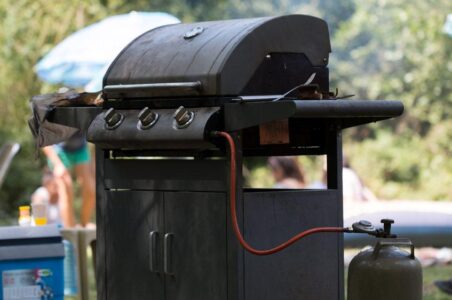This content has been archived. It may no longer be relevant
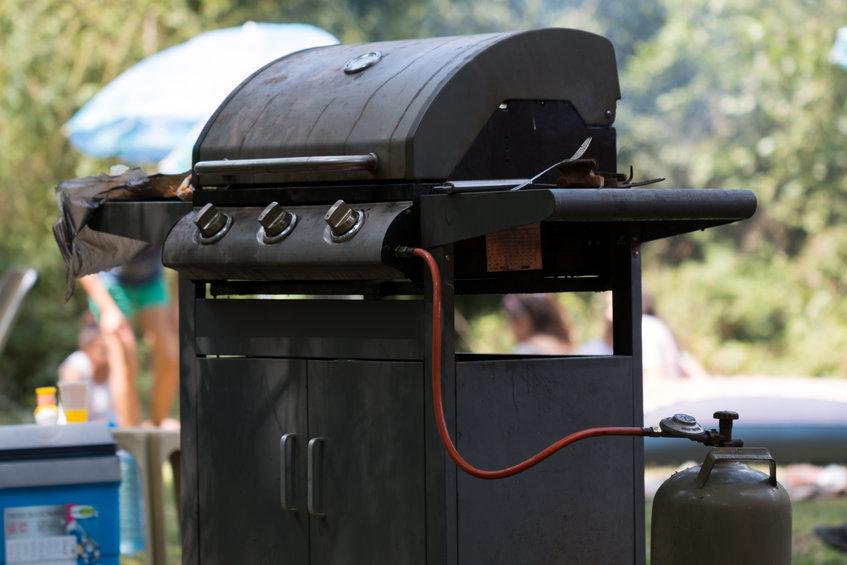
Gas grills have become a popular choice for outdoor cooking enthusiasts due to their convenience and ease of use.
Unlike traditional charcoal grills, gas grills rely on propane or natural gas as a fuel source, providing consistent heat for efficient and controlled grilling.
In this article, we will explore the various aspects of using gas for grills, including the advantages, types of gas, safety measures, maintenance tips, and more.
Advantages of Using Gas for Grilling
Using gas for grilling offers several advantages over other fuel sources.
Firstly, gas grills ignite quickly, allowing you to start cooking almost instantly.
They also provide precise temperature control, enabling you to adjust the heat to suit different types of food.
Gas grills produce less smoke and ash compared to charcoal grills, making them cleaner and easier to maintain.
Additionally, gas is readily available, making it a convenient choice for frequent grillers.
Types of Gas for Grills – Propane vs. Natural Gas
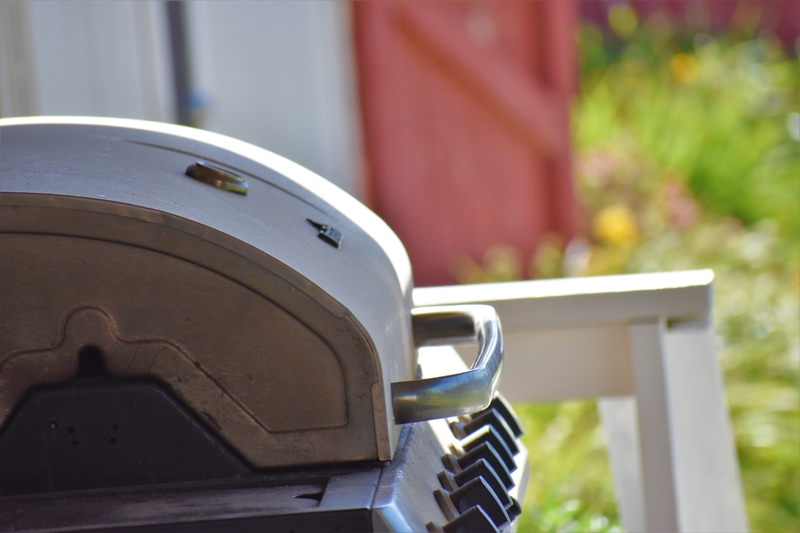 When it comes to gas grills, there are two primary fuel options: propane and natural gas.
When it comes to gas grills, there are two primary fuel options: propane and natural gas.
Propane is a portable and readily available fuel source stored in tanks, making it suitable for use in various outdoor settings.
On the other hand, natural gas requires a fixed gas line connection, providing a continuous fuel supply without the need for refilling tanks.
Both options have their advantages and considerations, and choosing the right type of gas for your grill depends on your specific needs and setup.
Which is the Best Fuel for a Gas Grill?
The choice between propane and natural gas as the best fuel for a gas grill depends on your specific needs and circumstances.
Here are some factors to consider:
- Portability
If you need portability and the ability to use your grill in different locations, propane is the better option.
Propane tanks are portable and easily refillable, allowing you to take your grill on camping trips, picnics, or tailgating events.
- Convenience
Natural gas is more convenient if you have a fixed grilling location with a natural gas line connection.
With natural gas, you don’t need to worry about refilling tanks as it provides a continuous supply of fuel.
This option is particularly suitable for those who frequently grill at home and want the convenience of not running out of fuel.
- Cost
Propane and natural gas have different cost considerations.
Propane tanks require periodic refilling, and the cost of propane can vary based on location and market conditions.
On the other hand, natural gas tends to be less expensive in the long run since it is supplied through a fixed gas line.
However, upfront costs for installing a natural gas line connection may be higher.
- Availability
Propane is widely available, with refill and exchange options available at many gas stations, hardware stores, and supermarkets.
Natural gas availability depends on having a natural gas line connection to your property.
If you don’t have a natural gas line nearby, propane may be the more accessible option.
In summary, propane is often preferred for its portability, while natural gas offers convenience and potentially lower long-term costs if you have a fixed grilling location with a natural gas line connection.
Consider your specific needs, such as mobility, convenience, and availability, to determine which fuel is the best fit for your gas grill.
Is Butane Ideal For Gas Grills?
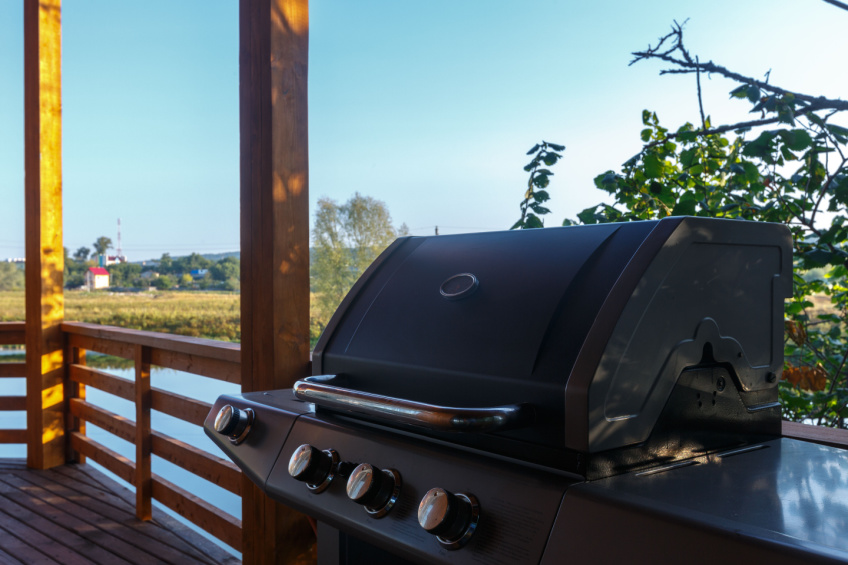 Butane is generally not ideal for gas grills due to a few key reasons:
Butane is generally not ideal for gas grills due to a few key reasons:
- Lower Energy Content. Butane has a lower energy content compared to propane, which means it produces less heat when burned. This can result in longer cooking times and difficulty achieving high temperatures needed for searing or quick cooking.
- Temperature Sensitivity. Butane has a higher boiling point than propane, making it more sensitive to temperature changes. In colder temperatures, butane may struggle to vaporize efficiently, leading to inconsistent fuel flow and reduced grill performance.
- Fuel Availability. Propane is more widely available and commonly used for grilling purposes. Butane is often used in portable stoves and camping equipment, but it may be more challenging to find dedicated butane fuel tanks or refilling options specifically designed for gas grills.
While there may be some grills that can be adapted to use butane, it’s important to consult the manufacturer’s guidelines and specifications to ensure safe and proper operation.
However, for most gas grilling applications, propane is the preferred choice due to its higher energy content, wider availability, and better performance in various weather conditions.
What is LPG Fuel? Is it Good For Gas Grills?
LPG (Liquefied Petroleum Gas) is a commonly used fuel source that consists primarily of propane and butane.
It is widely utilized for various applications, including cooking, heating, and powering vehicles.
LPG is an excellent fuel option for gas grills for several reasons:
- High Energy Content
LPG has a high energy content, which means it can produce intense heat quickly.
This makes it ideal for achieving high temperatures needed for grilling, searing, and quick cooking.
- Precise Temperature Control
LPG allows for precise temperature control on gas grills.
By adjusting the gas flow and burner settings, you can easily regulate the heat to suit different types of food and cooking techniques.
- Availability and Convenience
LPG is readily available in tanks or cylinders, making it convenient for use with gas grills.
It is commonly found at gas stations, home improvement stores, and specialized propane retailers.
Refilling or exchanging tanks is generally a straightforward process.
- Clean Burning
LPG is known for its clean-burning properties, producing lower emissions compared to other fossil fuels.
This can result in reduced smoke and less residue buildup on the grill, making cleanup easier.
- Versatility
In addition to grilling, LPG can be used for other outdoor cooking appliances, such as patio heaters, fire pits, and outdoor stoves.
This versatility allows for a unified fuel source for all your outdoor cooking needs.
When using LPG for gas grills, it’s important to ensure proper installation and adherence to safety guidelines.
Follow the manufacturer’s instructions for connecting and disconnecting the LPG tank, and always perform regular maintenance and safety checks on your grill.
Additionally, be sure to store and handle LPG tanks in a well-ventilated area, away from heat sources or open flames.
Overall, LPG fuel is a great choice for gas grills, offering high heat output, precise temperature control, and ease of use.
So is LPG and Propane the Same?
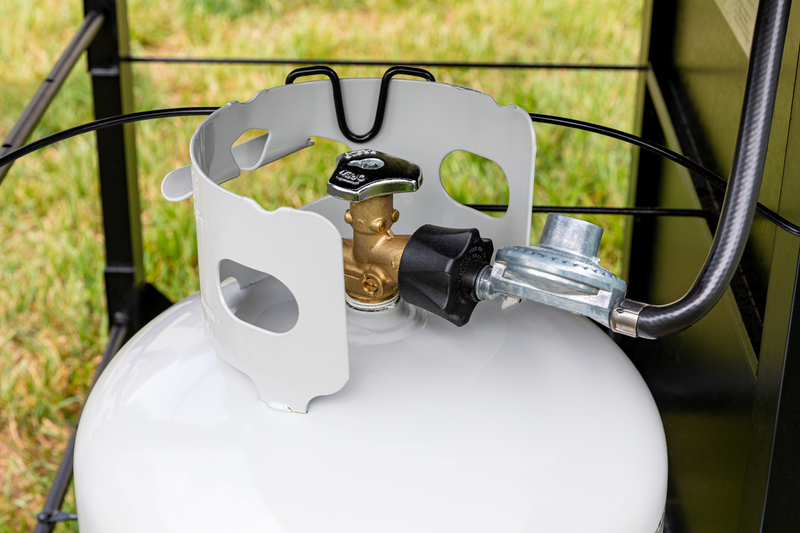 Yes, LPG (Liquefied Petroleum Gas) and propane are often used interchangeably and refer to the same type of fuel.
Yes, LPG (Liquefied Petroleum Gas) and propane are often used interchangeably and refer to the same type of fuel.
Propane is the primary component of LPG, along with other gases such as butane.
LPG is a broad term that encompasses a mixture of hydrocarbon gases that are liquefied under moderate pressure for storage and transportation.
Propane is the most commonly used and widely available gas within the LPG category.
In everyday usage, when people refer to LPG, they are usually referring to propane as the primary component of the fuel.
LPG and propane are used for a wide range of applications, including heating, cooking, hot water systems, and fuel for vehicles.
The terms LPG and propane can be used interchangeably to describe the same fuel source.
Some of the Best Propane Tanks on the Market
While the market offers various propane tanks, it’s important to consider factors such as quality, safety features, and customer reviews when determining the best propane tanks.
Here are a few highly regarded options:
- Worthington 20 lb. Propane Tank. Worthington is a well-known brand in the propane industry, and their 20 lb. propane tank is a popular choice. It features a durable construction, easy-to-read gauge, and a protective collar for added safety.
- Flame King 20 lb. Propane Cylinder. The Flame King propane cylinder is another top-rated option. It comes with a built-in gauge, an OPD (Overfill Protection Device) valve for safety, and a powder-coated finish to resist rust and corrosion.
- Manchester Tank & Equipment 20 lb. Propane Tank. Manchester Tank is a trusted name in the industry, known for its high-quality propane tanks. Their 20 lb. propane tank offers a sturdy design, a built-in gauge, and meets all safety standards for peace of mind.
- Bernzomatic Standard Propane Fuel Cylinder. Bernzomatic is a reputable brand specializing in gas-related products. Their propane tanks are DOT (Department of Transportation) certified and features a durable steel construction, a safety valve, and a comfort grip collar for easy handling.
- Coleman Propane Cylinder. Coleman is a well-known outdoor equipment brand, and their propane cylinders are commonly used for camping and grilling. Their propane cylinders are compact and convenient for portable grills and camping stoves.
Remember to follow local regulations and guidelines when purchasing and handling propane tanks.
Always check for certification marks and safety features to ensure you are selecting a high-quality and reliable propane tank for your grilling needs.
If You Opt for Natural Gas Grill – Connectors with Hoses
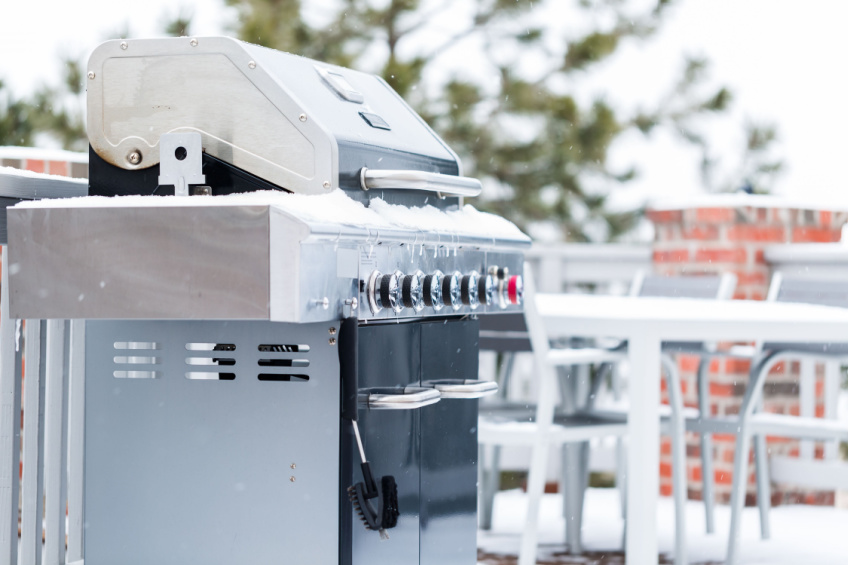 When it comes to connecting a natural gas BBQ to your gas line, it’s crucial to use appropriate grill connectors and hoses to ensure safety and proper functionality.
When it comes to connecting a natural gas BBQ to your gas line, it’s crucial to use appropriate grill connectors and hoses to ensure safety and proper functionality.
Here are some recommended options:
- GasSaf 10 Feet Hose. This hose is designed for natural gas and propane grills and comes with a quick-connect feature for easy and secure connection. It has a 10-foot length, which provides flexibility in positioning your grill. The hose is made of high-quality rubber and is compatible with most natural gas grills.
- DOZYANT 12 Feet Hose. This 12-foot hose is suitable for natural gas and propane grills and offers a quick-connect feature for convenience. It is constructed with durable rubber material and has solid brass fittings for reliable performance. The longer length allows for more flexibility in grill placement.
- Stanbroil 12 Feet Hose. The heavy-duty brass connectors ensure corrosion resistance and provide a secure, leak-free operation, guaranteeing your safety during use. The hose is compatible with most natural gas grills and offers a secure connection.
When selecting grill connectors and hoses, ensure they are compatible with your specific grill model and the natural gas supply in your area.
It’s also important to follow the manufacturer’s instructions and local safety regulations when installing and using these components to ensure a safe and reliable connection between your natural gas BBQ and gas line.
Understanding Gas Grill Safety Measures
Safety should be a top priority when using gas grills.
Always follow the manufacturer’s instructions and take the necessary precautions.
Some essential safety measures include:
- Regularly inspecting gas lines and connections for any leaks or damage.
- Keeping the grill in a well-ventilated area and away from flammable objects.
- Using a gas grill outdoors to prevent carbon monoxide buildup.
- Turning off the gas supply at the source when the grill is not in use.
- Using long-handled grilling tools to avoid burns and accidents.
- Keeping a fire extinguisher nearby in case of emergencies.
Troubleshooting Common Issues with Gas Grills
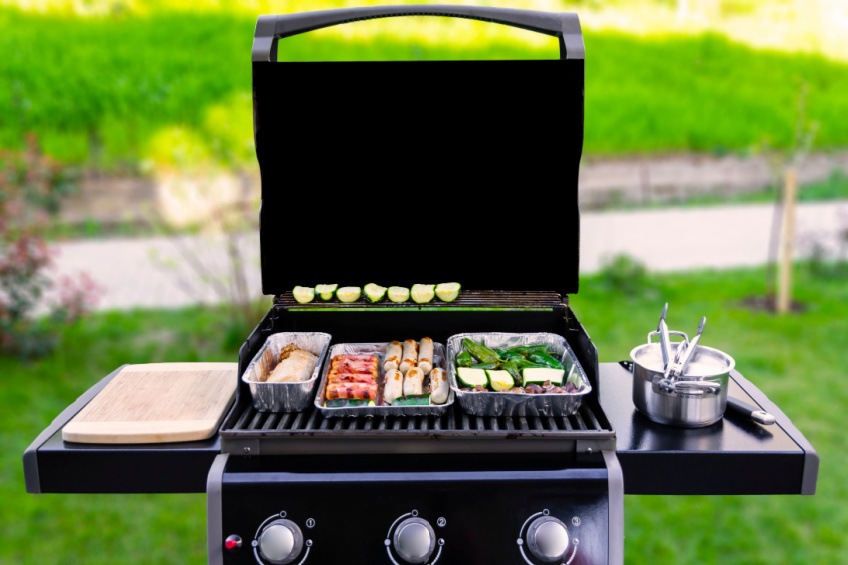 Gas grills may encounter common issues that can be easily resolved.
Gas grills may encounter common issues that can be easily resolved.
Some troubleshooting tips for gas grill problems include:
- Checking for gas leaks by applying a soapy water solution to the connections.
- Adjusting the burner air intake to maintain a consistent flame.
- Cleaning clogged burner ports using a wire brush or a pin.
- Inspecting and replacing the gas regulator if it’s faulty.
- Verifying that the gas tank is not empty or expired.
- Contacting the manufacturer or a professional if you encounter persistent issues.
Bottom Line – Gas for Grills
In conclusion, using gas for grilling offers numerous advantages and has become a popular choice among outdoor cooking enthusiasts.
Gas grills, fueled by propane or natural gas, provide convenience, precise temperature control, and a cleaner grilling experience compared to charcoal grills.
Propane and natural gas are the two primary types of gas used for grilling.
Propane is portable, readily available, and suitable for various outdoor settings, making it ideal for those who value mobility.
Natural gas, on the other hand, offers a continuous fuel supply without the need for refilling tanks, making it convenient for fixed grilling locations with access to a natural gas line.
Safety measures are paramount when using gas grills.
Regular inspection of gas lines, proper ventilation, and following manufacturer’s instructions are essential to ensure safe grilling experiences.
Overall, gas grilling with propane or natural gas provides convenience, precise control, and an enjoyable cooking experience, making it a popular choice for outdoor cooking enthusiasts.

